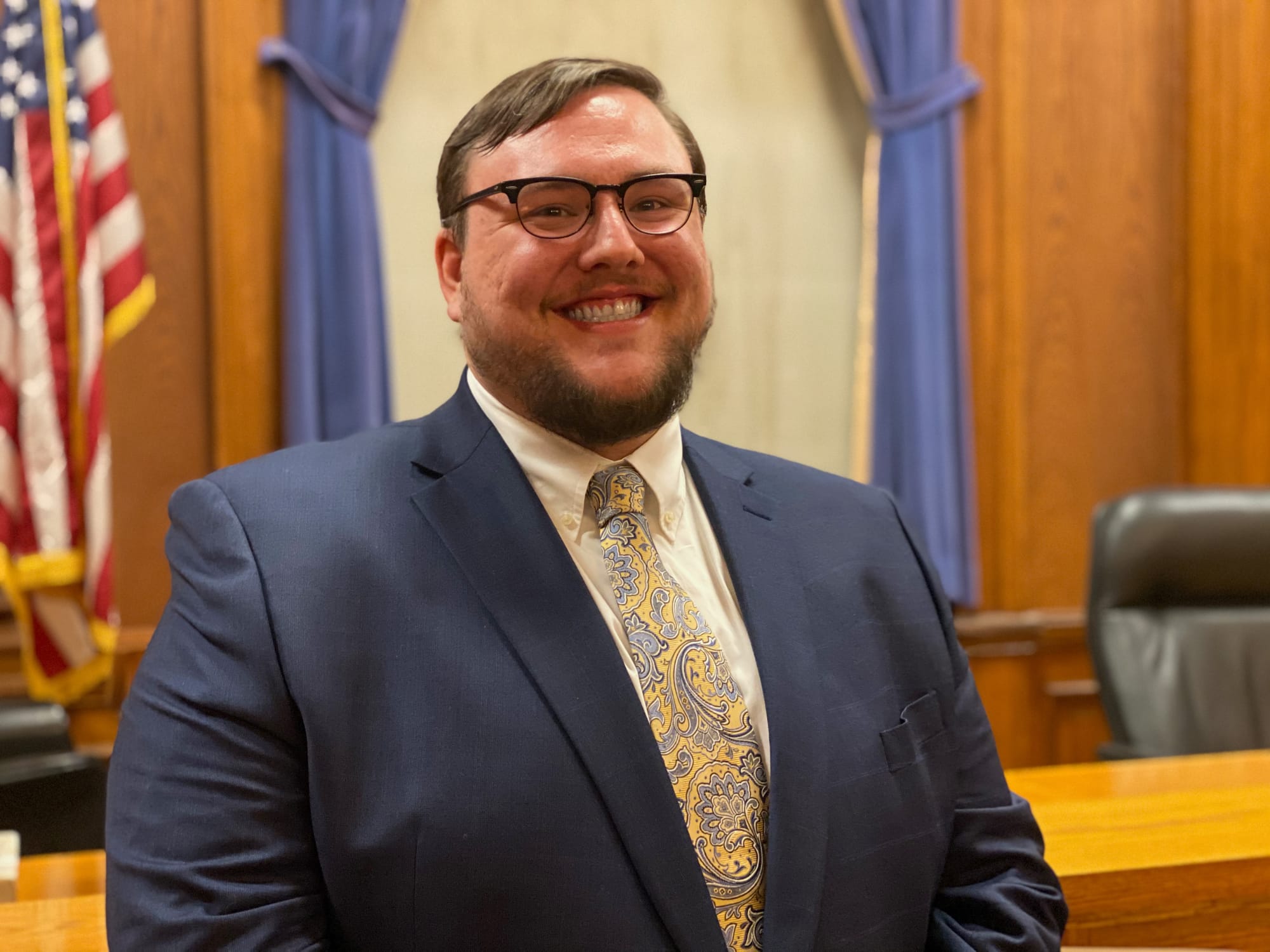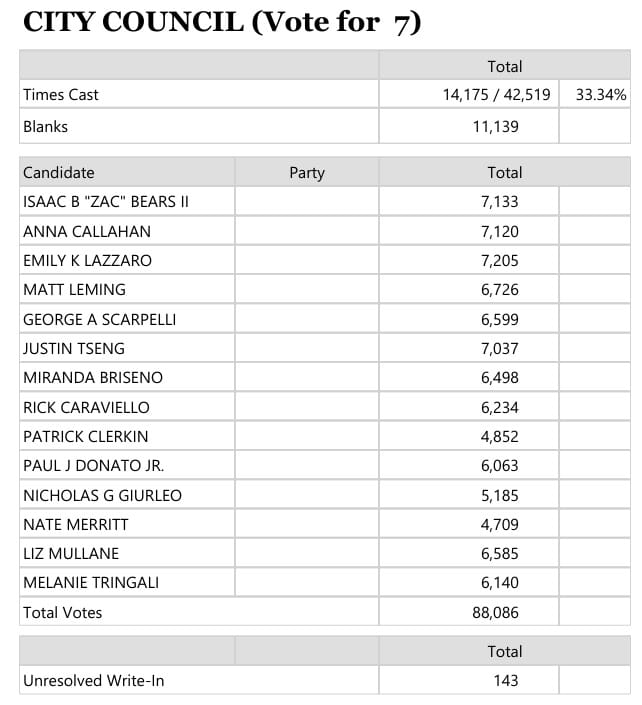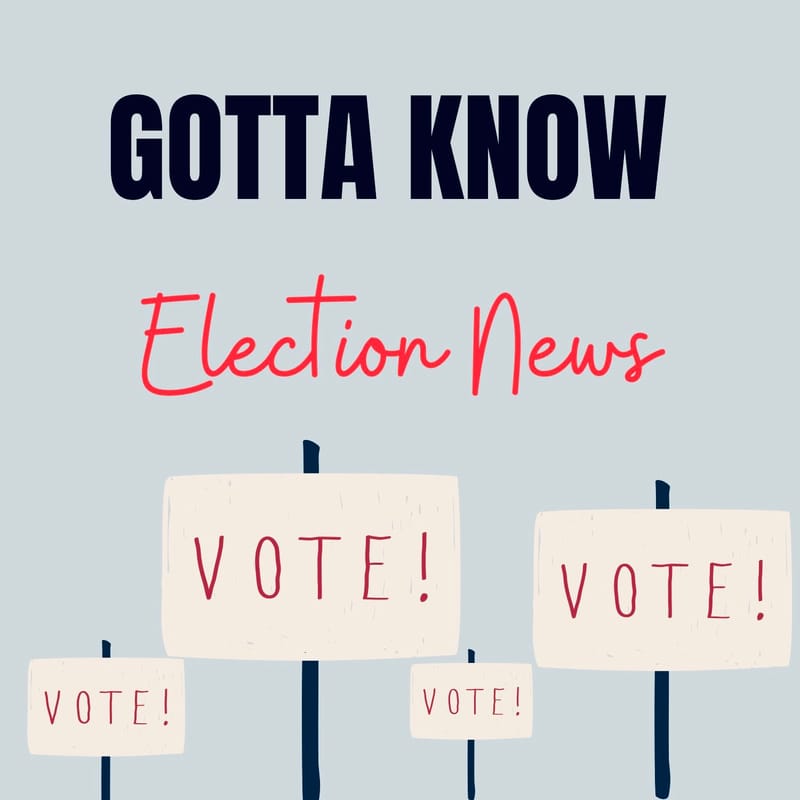Meet City Council Candidate Zac Bears
Incumbent

How many years have you lived in Medford?
I’ve lived in Medford for 27 years, growing up in the Fulton Heights, graduating from the Medford public schools, and now residing in Hillside.
Please describe your professional background and education.
Nonprofit operations and finance director (2022 to present), formerly a nonprofit executive director, economist for Bureau of Labor Statistics, labor union communications staff member, and self-employed communications and administrative consultant.
Medford High School Class of 2011, UMass Amherst (BA, economics and BA, political science) class of 2015.
What, if any, city positions (appointed or elected) have you held, and for how long?
Medford city councilor from 2020 to present
What volunteer roles have you participated in that you feel have made a difference in Medford?
- Six years as a current board member of the Medford-Brooks Estate Land Trust.
- Community organizer and advocate for improved Tufts PILOT agreement as part of Our Revolution Medford and the Medford-Somerville PILOT Working Group.
- Youth volunteer at Buddy Coholan Memory Loss Center.
- Supporter of Mutual Aid Medford and Somerville (MAMAS), Friends of Chevalier Theater, Friends of Medford Public Library, CACHE, Medford Historical Society and Museum, Medford Family Network, Medford citywide and elementary PTOs, Medford High boy’s soccer team, Medford Mustang Marching Band, and more.
Why should residents vote for you?
I’m running for reelection to the Medford City Council to implement a bold, transformative plan to fund Medford’s future. We need to build a Medford that works for all of us by investing in public schools and city services, addressing the housing crisis by allowing more housing that fits our neighborhoods, revitalizing our business districts by encouraging the smart and significant growth our community needs, and ensuring that people of all backgrounds are welcomed and can afford to live in our city.
As a lifelong resident and graduate of Medford public schools, I know what this community means to residents, whether they have lived here for 5 days or 50 years, because this community means so much to me. We have accomplished so much together already, and we can do even more if we work together and take action on the great opportunities that lie ahead for Medford.
What do you believe are the top 3 issues currently facing the city of Medford? How do you specifically plan to address those issues?
Over the next two years, I’ll focus my time on (1) implementing a real revenue plan to fund our city budget and build a new Medford High School, (2) passing policies to make housing more affordable and create more vibrant business districts, and (3) creating a more inclusive, accessible and democratic city government.
1. Implement a real revenue plan to fund our city budget and build a new Medford High School
Two years ago, I promised to pass the city’s first-ever Budget Ordinance, establish the Financial Task Force to deliver major investments in our public schools and city services, and take urgent action to raise revenue. I’m so proud to say that we accomplished each of those goals and our city and schools are better off because of our successful efforts.
But I know we’re all still fed up with broken streets and sidewalks, understaffed city services, and a beautiful Medford Public Library that doesn’t have the funding or staffing to stay open on Sundays.
While the 2024 overrides stopped the bleeding of budget cuts and allowed for significant investments in our schools, Medford must enact and implement a real plan to raise revenue through smart and transformative new growth and development. That’s the work this Council has been focused on this term.
Now is the time for us to come together and move forward collaboratively to make the big decisions to fully fund the city budget and build a better future for Medford and all of its residents.
Over the next two years, I look forward to:
● Bringing together the city’s development planning and revenue planning processes to ensure that the city raises the revenue necessary to provide basic services through new growth of our commercial and mixed-use tax base.
● Demanding clear plans and timelines from the mayor and city administration for when and how we will fix our streets, update our water and sewer lines, and restore our public buildings by using the transparent budget process created by the new Budget Ordinance.
● Working with residents, families, the mayor as part of the Financial Task Force, and the Medford High School Building Committee to outline a plan to fund the construction of a new Medford High School with significant state funds from the Massachusetts School Building Authority.
2. Pass policies to address the housing crisis and revitalize our business districts
My top reason for running for City Council in 2019 was housing affordability and preventing displacement. Six years later, I still haven’t found a way to buy a home in the city I love, and I’ve seen even more friends and neighbors forced to leave the city they love because of skyrocketing housing costs. We need to make sure Medford stays affordable for people who want to stay here, and is affordable enough to welcome in new neighbors.
Updated zoning provisions and city ordinances we passed over the past two terms are starting to help, but we need to continue our work towards the goal of providing housing for all.
Over the next two years, I look forward to:
● Passing updates to the Zoning Ordinance to build more housing that fits our residential neighborhoods and revitalize our squares and business districts through expanded mixed-use and commercial development.
● Climate-focused city planning (including passing the new green building code) and making streets, sidewalks, and open spaces more walkable, bikeable, and accessible for people using all forms of mobility devices.
● Encouraging smart economic development that brings in new commercial and mixed- use projects on vacant or underutilized land in the city.
3. More inclusive, accessible, and democratic city government. Medford needs to dedicate more funding to increase public engagement and collaboration with residents and expand great initiatives like the community liaisons program. Even more importantly, we need real structural changes to our City Charter, ordinances, and daily practices to make city government more inclusive and more democratic.
Over the next two years, I look forward to:
● Demanding major updates to our city’s digital infrastructure and website so residents can easily access city services and find key information and metrics about our city budget and the performance of our city departments.
● Increasing funding for community engagement and outreach to include more residents in the collaborative work of local government.
● Advocating for more resources to expand Medford’s community liaisons program and support the Office of Diversity, Equity, and Inclusion.
● Implementing the proposed new City Charter if it passes in November and advocate for the passage of meaningful checks and balances that reduce the concentration of power in the mayor’s office in future charter review processes.
● Ensuring that mayor-appointed city boards and commissions are more representative of the racial and economic diversity of our community
Transparency and communication are vital in representative government.
What steps will you or have you taken to keep your constituents informed
about local decisions and to explain your voting rationale?
I have been incredibly active in expanding transparency and communications between the City Council and residents. In my first and second term, I fought for and secured hybrid meetings during the pandemic, the city’s first-ever translation services line-item to translate materials into multiple languages, a redesign of the city website, consistent outreach to local and state media outlets (including significant coverage of the FY23 city budget debacle through my data analysis and presentations to the community) and provided regular updates to residents on my website, email, and digital outreach.
During the 2024-2025 term, the City Council has further expanded our engagement with residents. The council initiated a process and published the first ever governing agenda to outline our goals and what we would be working on for the full two-year term – no other City Council in Massachusetts has a more clear and transparent planning document like this. We updated the committee structure to create clear policy areas and hold dozens more meetings than previous councils to address substantive issues. In partnership with my fellow councilors, the City Council established and published a monthly newsletter, began streaming all meetings live on YouTube, and set monthly listening sessions in the community to hear from our neighbors.
What specific methods will you use to gather and represent your up constituents’ perspectives on issues that come before the City Council?
In addition to all of the methods above, I regularly speak with residents about the issues they care about and conduct constituent services to help residents access city services or address ongoing issues.
Please reach out to me at ibears@medford-ma.gov to talk to me about what’s happening in our community, set up a time to have a deeper conversation, or let me connect you with city staff who can help address any issues or concerns you may have.
The past two years, the City Council has been updating the zoning across the city. Many residents feel the process has been too quick and has covered too much at once. What are your thoughts on that? If elected, how would you approach zoning?
Thousands of Medford residents have been part of the collaborative project over the past 6 years to create a solid plan for the city’s growth and development and finally update the city’s broken, outdated zoning.
Updating our zoning is key for three reasons:
(1) Medford needs to encourage significant and smart new commercial and residential development to grow our tax base and fund our city services and schools. All of our city’s planning documents and budget processes make this reality clear.
(2) Our current patchwork zoning enables and incentivizes developers to maximize their profits and doesn’t protect our city’s climate and open space goals. New and proposed zoning updates include performance standards, design standards, open space requirements, and other requirements. These ensure that Medford receives significant community benefits as we experience the inevitable development that will happen no matter what due to the skyrocketing value of land and property in Medford.
(3) Medford and our region are part of a housing crisis caused by not having enough housing for everyone who wants to stay here or move here. Every study, both local and national, shows that building new housing is the best way to help keep the housing we already have more affordable and slow down price increases that are making it impossible to live here and driving displacement of our neighbors. The council and planning team have proposed focusing the biggest potential change and growth in our commercial squares and mixed-use corridors, while allowing for the possibility of 1-2 more units than is currently possible on lots in many of our residential neighborhoods, which is what our city’s planning documents recommend.
The work over the past six years first resulted in the 2022 zoning recodification that passed unanimously and has brought smart, responsible new developments to Medford and helped support new small businesses and expanded nightlife with later operating hours.
From 2021 to 2023, the mayor, City Council, and planning staff worked alongside thousands of residents to develop our 2023 Comprehensive Plan, which outlines a 30-year vision for growth and change in our city that allows us to improve our community and preserve what we love about Medford now. This plan included a number of recommendations to update our zoning ordinances.
In December 2023, the Council voted to accept a proposal for the next phase of this work through a Zoning Updates Project that outlined an 18-month, $150,000 contract with a zoning consultant team for citywide rezoning to implement the recommendations of our Comprehensive Plan, Climate Action Plan, Housing Production Plan, and decades of studies that sat on the shelf because the city did not act. This phase of the project has been a partnership between the City Council, mayor’s administration, and planning staff and has engaged thousands of residents across over 50 public meetings.
I’m proud to say that this resulted in the passage of Mystic Avenue rezoning in 2024 to activate a long underutilized and ignored area of the city as well as updates to the Salem Street zoning to allow for smart mixed-use development and growth in a key business and commercial area of the city. We also passed the Green Score zoning provision to ensure that big new developments are meeting our city’s environmental and climate goals and adding significant trees and green space to the current seas of pavement we currently see in commercial areas.
As the zoning updates project continued, it became clear that the mayor needed to provide more funding and resources for public engagement and extend the contract, which City Council Vice President Collins and other councilors began advocating for in 2024. While some additional resources helped us reach more residents, including receiving statewide recognition from the Mass. Municipal Association for our extensive communications efforts, I began working with city staff on a contract extension this spring and formally outlined my request for an extended process for this project in July 2025.
I am hopeful that the mayor will agree to provide the funding and resources to extend the contract for this project for the next two years through 2027 so that we can all work together to complete the essential and necessary work to update the zoning for our squares and corridors and review proposals to update residential zoning to implement our city’s plans and achieve our shared goals.
There have been City Council meetings that have gone past midnight. Do you really think these marathon meetings are serving the public? Should there be a time cap on meetings for everyone’s sake?
Long public meetings have been a mainstay of Medford politics for decades under many different City Councils, School Committees, and meetings of other public boards. During my first year on the council, one of our budget meetings went for over 10 hours. With our new Budget Ordinance and more frequent substantive meetings through the new committee structure, most council meetings have gotten more focused and shorter, which increases resident engagement.
Yes, some of our meetings this term have been long and gone late into the night. Medford has a rich tradition of allowing for extensive public comment – far more than any other neighboring communities. Sometimes this means that meetings go later than any of us would like, but the only way to responsibly put a hard stop on a meeting would be to limit the total time for public comments and hold councilors to a strict time limit on their own comments as well. I would be willing to discuss making a change like that, but I believe the long-standing approach of hearing every voice and having thorough, spirited discussion on each agenda item followed by a vote has worked for decades and will continue to work for our community.




